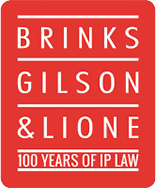On Monday, June 24, the U.S. Supreme Court agreed to hear Georgia v. Public![]() Resource
Resource![]() Org Inc., No. 18-1150, and to decide whether annotations that accompany state and local laws are copyrightable. In particular, the issue, as defined in Georgia’s petition for cert., is “whether the government edicts doctrine extends to – and thus renders uncopyrightable – works that lack the force of law, such as annotations in the Official Code of Georgia Annotated.”
Org Inc., No. 18-1150, and to decide whether annotations that accompany state and local laws are copyrightable. In particular, the issue, as defined in Georgia’s petition for cert., is “whether the government edicts doctrine extends to – and thus renders uncopyrightable – works that lack the force of law, such as annotations in the Official Code of Georgia Annotated.”
The government edicts doctrine is a judicially created exception to copyright protection prohibiting such protection for government edicts – such as judicial decisions and statutes. The Supreme Court last directly addressed the scope of the edicts doctrine over a century ago in two cases in 1888. The Court first held that opinions of state court judges, just like Supreme Court opinions, were not copyrightable.1 Shortly thereafter, the Court held that federal copyright law did not prevent a state-employed reporter from holding a valid copyright in the result of his own “intellectual labor” (e.g., writing annotations for opinions in the Illinois Reports) when the state had not reserved the copyright to itself.2 Now, over a century later, the Court will decide whether a state (Georgia, in this instance) can hold a valid copyright in the annotations that accompany state statutes. These annotations include analysis and relevant judicial opinions, and thus elaborate on the law – but they are not themselves legally binding.
This case began in 2015, when the state of Georgia brought a copyright infringement suit against the website Public![]() Resource
Resource![]() Org (“PublicResource”) for republishing on its website, free of charge, 186 volumes of Georgia’s annotated state code. Georgia held the copyright to its annotated code, made the plain text version available for free online, and gave LexisNexis exclusive rights to sell the annotated code for $404 per copy. Such outsourcing of the publication and annotation of regulations to the private sector is common these days. At the district court, Georgia prevailed on a motion for summary judgment, where the court held that the annotations were copyrightable and that PublicResource’s activities constituted infringement.3 However, this ruling was reversed on appeal, where the 11th Circuit Court of Appeals determined that “authorship” is the basis for the edicts doctrine.4 The appellate court held that the people are the ultimate authors of the annotations, and, as a work of the people, the annotations are “inherently public domain material and therefore uncopyrightable.”5
Org (“PublicResource”) for republishing on its website, free of charge, 186 volumes of Georgia’s annotated state code. Georgia held the copyright to its annotated code, made the plain text version available for free online, and gave LexisNexis exclusive rights to sell the annotated code for $404 per copy. Such outsourcing of the publication and annotation of regulations to the private sector is common these days. At the district court, Georgia prevailed on a motion for summary judgment, where the court held that the annotations were copyrightable and that PublicResource’s activities constituted infringement.3 However, this ruling was reversed on appeal, where the 11th Circuit Court of Appeals determined that “authorship” is the basis for the edicts doctrine.4 The appellate court held that the people are the ultimate authors of the annotations, and, as a work of the people, the annotations are “inherently public domain material and therefore uncopyrightable.”5
Naturally, Georgia and PublicResource disagree as to whether the appellate court was wrong to extend the edicts doctrine to cover Georgia’s annotated laws. However, both parties agreed that Georgia’s petition for cert. should be granted, as the edicts doctrine has proven difficult to apply when a work does not fit neatly into the category of statutes or judicial opinions and the Supreme Court could offer significant clarity.
Implications
In addition to Georgia, several other states hold registered copyrights in annotations to their statutory codes. If the Supreme Court adopts the 11th Circuit’s view of the government edicts doctrine, these copyrights may be at risk of invalidation. PublicResource argues that, in the absence of these copyrights, the public will have greater access to the law, particularly in the absence of the fees normally associated with copyrighted annotations. Conversely, Georgia argues that the copyrights are necessary incentives for third party companies to assist in either producing annotations or distributing annotated copies, or both. The Supreme Court now has the chance to clarify whether annotations to the law, like the law itself, belong to the people.
[1] See Banks v. Manchester, 128 U.S. 244 (1888).
[2] See Callaghan v. Myers, 128 U.S. 617 (1888).
[4] Code Revision Comm’n v. Public![]() Resource
Resource![]() Org, Inc., 906 F.3d 1229, 1242 (11th Cir. 2018).
Org, Inc., 906 F.3d 1229, 1242 (11th Cir. 2018).





 />i
/>i

